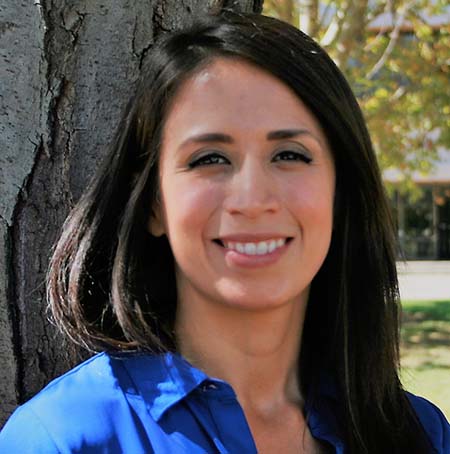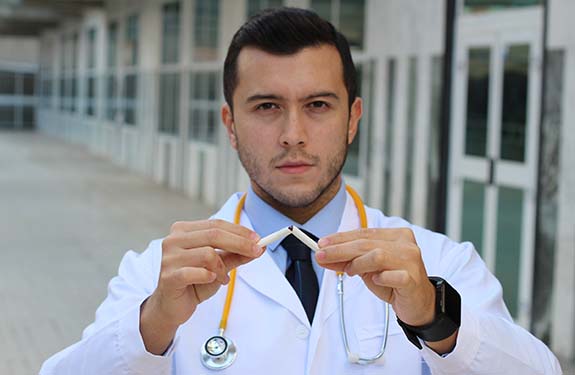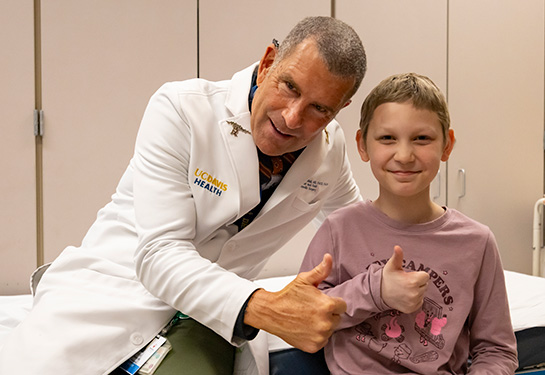Latino smokers on Medi-Cal still not getting help needed to quit
New study shows even expanded access to health insurance isn’t making a difference
A team of researchers with the UC Davis Comprehensive Cancer Center found that even with expanded access to Medi-Cal, Latino smokers in California continue to get less help quitting smoking.
There are about three million smokers in California and a third are Latino. Results from a cross-sectional study of 1,861 participants published in JAMA Network Open today highlight the inequity. The research shows that Latino smokers on Medi-Cal do not receive the same amount of tobacco cessation advice and assistance that non-Latino white smokers on Medi-Cal receive when they are seen by health professionals.
The lead author of the study, Cindy Valencia, said that using strategies to engage tobacco users outside of a clinical encounter, such as proactive outreach and community-based engagement, may help address this disparity. The study was conducted as part of Valencia’s PhD dissertation in Public Health Sciences. She is the first graduate of the program and a Latina.

“Access to health insurance coverage and health care services, including tobacco cessation treatment, is a known barrier among Latinos, but it was hoped that through Medicaid expansion, things would improve,” said Valencia. “Unfortunately, according to our research, that is not the case.”
The Affordable Care Act (ACA) increased access to Medicaid, which is called Medi-Cal in California. By the fall of 2014, 2.8 million more people in the state gained access to Medi-Cal. Of these, 41% were newly insured non-elderly Latinos. The percentage of smokers covered by Medi-Cal increased substantially, from 19.3% before the ACA to 41.5% afterward.
“Few studies have looked at whether access to tobacco treatment has improved for Latino smokers after increased access to health care, which is why at UC Davis we felt it was important to examine the data to see if there were changes,” said Valencia.
Valencia adds that the results may be useful in designing future strategies and studies for health equity.
“Latinos reported smoking less, visiting the doctor less and having fewer chronic illnesses,” said Valencia. “So, even with health insurance, there may be missed opportunities to discuss the health benefits of quitting smoking and the options for tobacco treatment.”
UC Davis Comprehensive Cancer Center's SToP Tobacco Program, led by Elisa Tong, already conducts proactive outreach to tobacco users. This outreach is done in partnership with the UC Davis Health Management Education team and in partnership with Kick It California, which provides free counseling services in Spanish and Asian languages.
UC Davis’ Center for Healthcare Policy and Research CA Quits project, led by Tong and Valencia, hosts a statewide learning collaborative and workgroup for health systems and health plans that serve Medi-Cal patients. They hope to disseminate these findings and incorporate similar strategies as the cancer center continues to promote health equity.
Factors Associated with Receipt of Smoking Cessation Advice and Assistance by Providers Among Latino and Non-Latino White Smokers with Medicaid Insurance in California study was funded by the Tobacco-Related Disease Research Program. Other authors who contributed to the study include UC Davis researchers Elisa Tong and Melanie Dove.
UC Davis Comprehensive Cancer Center
UC Davis Comprehensive Cancer Center is the only National Cancer Institute-designated center serving the Central Valley and inland Northern California, a region of more than 6 million people. Its specialists provide compassionate, comprehensive care for more than 100,000 adults and children every year and access to more than 200 active clinical trials at any given time. Its innovative research program engages more than 240 scientists at UC Davis who work collaboratively to advance discovery of new tools to diagnose and treat cancer. Patients have access to leading-edge care, including immunotherapy and other targeted treatments. Its Office of Community Outreach and Engagement addresses disparities in cancer outcomes across diverse populations, and the cancer center provides comprehensive education and workforce development programs for the next generation of clinicians and scientists. For more information, visit cancer.ucdavis.edu.




